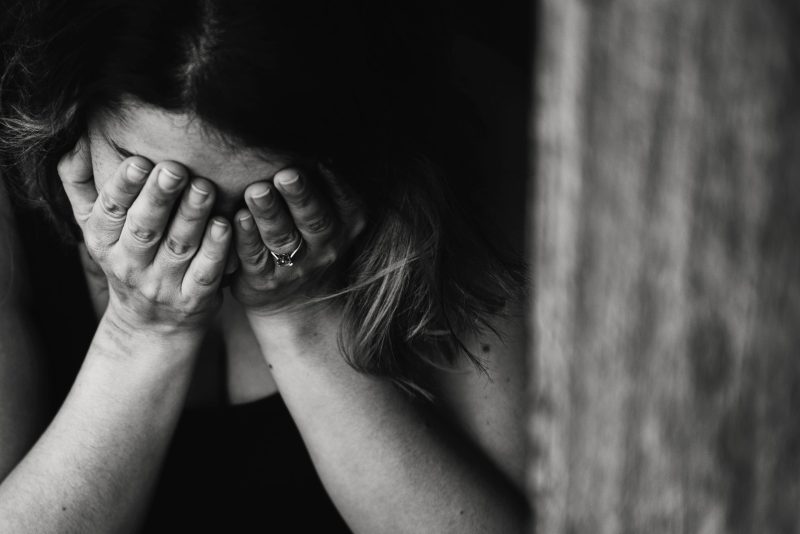Romantic rejection is a common experience that most people experience at some point in their lives. Whether you are someone who has been rejected or someone who has done the rejecting, it can be a difficult and painful experience but an opportunity for growth and self-discovery. It is important to understand what romantic rejection is and how it can impact your life.
This article will give you a better understanding of romantic rejection and how it affects you, providing practical tips and insights to help you navigate this challenging experience and emerge stronger and more confident in your future relationships.
Understanding romantic rejection
Cambridge Dictionary (n.d) defines romantic rejection as the act of not giving someone the love and attention they want and expect. It is a common experience that can feel especially painful because it often affects how we think about whether or not someone finds us attractive.
How someone looks might play a significant role in dating and finding a partner. It’s easy to think that having good looks and a sexy body is crucial in attracting others. Although physical appearance may not be everything, research has found that it can influence how people perceive potential romantic partners.
There are different types of romantic rejection, each with its unique challenges. The most common is when one person expresses interest in another, then declines. This scenario can happen not only in a dating context but also in a more casual setting, such as friendships or professional relationships.
Another type is when one person ends a relationship with another, whether mutually or one-sided.
Finally, there is rejection because the person is not interested in pursuing a relationship with another, which can be difficult to understand and accept.
Phases of romantic rejection
Experiencing romantic rejection can be a challenging and emotional process. It is essential to acknowledge that it often involves a range of different emotions and reactions.
Rejection can have a significant psychological impact, often leading to strong emotions such as sadness, anger, and self-doubt.
Furthermore, it may also trigger feelings of abandonment, which can contribute to anxiety and depression. Coping with rejection can be especially challenging, leaving individuals feeling helpless and making it tough to move forward.
While everyone experiences romantic rejection differently, there are some typical phases that many people go through. The different phases of romantic rejection are often compared to the five stages of grief originally proposed by psychiatrist Elisabeth Kübler-Ross. These stages were initially proposed to describe the emotional journey of individuals experiencing the loss of a loved one, but they can also apply to the experience of romantic rejection.
By recognizing these stages below, one can better understand the emotional journey of romantic rejection and take steps to heal and move forward:
Stage 1: Initial shock
When you experience romantic rejection, the first phase often involves a sense of initial shock and disbelief. When you learn that you have been rejected, it can be hard to comprehend and accept. You may try to deny it or convince yourself that it’s not real or that the person will change their mind. This stage can be confusing as you come to terms with the rejection and what it means for you.
Stage 2: Emotional turmoil
In this phase, you may experience intense emotions such as sadness and anger, which can be difficult to manage and can make it difficult to focus on other parts of your life. It’s essential to acknowledge and accept these emotions, but taking care of yourself is equally crucial during this time. This may include seeking support from a trusted friend or therapist and engaging in self-care activities that make you feel better.
Stage 3: Self-blame
The following common phase of romantic rejection is self-blame. In this stage, you might be asking yourself questions and wondering if there was anything you could have done to avoid rejection. It’s common to start believing that you’re not good enough or that something is wrong with you that caused the rejection.
However, it’s important to remember that often, the reasons why someone might end a relationship or turn down your advances have little to do with you personally. By redefining your perspective and focusing on your positive qualities, you can overcome self-blame and move toward healthier thinking.
Stage 4: Rumination
This phase often follows self-blame, where you may find yourself replaying the details of what happened in your mind. Obsessively thinking about rejection can make it difficult to concentrate on other aspects of your life or to move on.
To overcome this phase, try to engage in activities that help you take your mind off the rejection or to seek support from others. By breaking the rumination cycle, you can regain control of your thoughts and emotions and begin to focus on moving forward.
Stage 5: Acceptance
Finally, you begin to accept the rejection and move on. You may start feeling optimistic, more positive, and hopeful about the future, seeing rejection as an opportunity for personal growth and self-discovery. This positive mindset is crucial to the healing process and can help you progress in a healthy direction.
How to deal with romantic rejection
Going through romantic rejection can be difficult, but there are many strategies you can use to cope with and heal from rejection. It is important to remember that rejection does not define your worth as a person. It is simply a reflection of someone else’s feelings and preferences.
Additionally, recognize that rejection is a normal part of life that everyone experiences at some point. By shifting your mindset and using some of the coping strategies in this section, you can overcome the pain of rejection and emerge even stronger.
Feeling your emotions
One of the first steps in dealing with rejection is feeling your emotions. Instead of suppressing or ignoring the pain and sorrow that rejection brings, you should acknowledge and accept it.
It can also be helpful to talk about your feelings with a trusted friend or family member or write them in a journal. Expressing your emotions can help you process them and gain perspective.
Practicing self-care
An important aspect of dealing with rejection is prioritizing self-care. This includes nurturing physical, emotional, and mental well-being. Engaging in activities such as exercise and meditation and spending time with loved ones can effectively promote self-care.
Moreover, taking time to pursue activities you enjoy and taking your mind off the rejection can be beneficial. Doing so helps you to focus on personal growth and self-improvement during the healing process. Setting personal goals, learning new skills and hobbies, and working on your self-esteem allows you to shift your focus toward building a better future for yourself.
Self-acceptance
Remember: rejection does not define you as a person. It is a common misconception to tie your worth to the outcome of a romantic pursuit, but it is important to recognize that many factors are involved in any relationship.
Instead, treat rejection as a learning experience that helps you better understand your wants and needs in the relationship. By reframing rejection in this way, you can take a more positive outlook and move forward with greater confidence.
Forgiveness
Another key aspect of healing from rejection is forgiveness. Forgiving those who rejected you and forgiving yourself can be challenging, but it is an important step in the healing process. Forgiveness allows you to move on from the rejection and let go of any negative emotions you may be holding on to. It helps to focus on the present and future instead of dwelling on the past.
Letting time heal
Finally, when it comes to healing from rejection, time is an important factor and is not a linear process. Healing takes time, and it is crucial to be patient with yourself as you work through the rejection. You may have good and bad days, but the bad days will become fewer and farther between over time.
Reminding yourself that rejection is a natural part of the healing process and not a reflection of your worth as a person can be helpful during the journey.
In conclusion
Dealing with and healing from romantic rejection can be a difficult and painful experience, but it can also be an opportunity for self-growth and self-discovery. By acknowledging and experiencing your feelings, taking care of yourself, and seeking professional help, you can begin to heal from the rejection.
It is also important to keep in mind that rejection does not define you, and in that time, forgiveness, personal growth, and positive support are all important in the healing process. Remember that the healing takes time, so be kind to yourself as you work through the rejection.
If you would like to see more resources on the topic of romantic rejection, check out the Relationships Science Labs. The lab uses the research of the Institute for Life Management Science to produce courses, certifications, podcasts, videos and other tools. Visit the Relationship Science Labs today.
Photo by Kat Smith on Pexels


